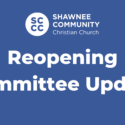a little r & r

The pandemic has left us all in any number of quandaries. Among them: a) returning to the workplace or working virtually from home, b) ensuring everyone has sufficient income to live but not so much from government relief checks people are discouraged from returning to work, and c) ensuring working parents have affordable preschool childcare so they aren’t caught in a bind between working and ensuring their children are adequately cared for.
These quandaries took center stage in the public’s attention the first Friday of May, the 7th, when the Bureau of Labor Statistics reported far fewer people returned to work than expected. The expectation was that the report would announce a million people returning to work, when just under 300,000 did. Adding to these quandaries is that most of these 300k jobs went to men and not to women, who have been especially negatively affected by the pandemic.
I got a lesson about how complicated these quandaries are while talking to a businessman recently. He informed me that some of his employees, even with increasing vaccinations, are now refusing to return to work in person so they can continue to provide their children sufficient care AND avoid gas-guzzling 30-to-45-minute commutes to work. Really, you can’t blame them for preferring to continue to work virtually from home.
Yet, this is where the quandary intensifies. Some of his employees, by the nature of their jobs, have no choice but to return physically to work. It is impossible to do restaurant or custodial work from home. These employees often work at low or minimum-wage paying jobs that make childcare often beyond their reach.
But how do the better paid, higher-tech employees answer the question about the unfairness to poorer paid employees having to pay for childcare while they don’t? He says, “They don’t care!” He adds, “These employees further justify their refusal to return physically to work by saying they are helping the environment by decreasing the amount of fossil fuels their adding to the air!” Though true, this doesn’t address the issue of shared justice in the notable difference in pay, especially in providing minimum wage employees more affordable childcare!
But here’s where these often-intersecting quandaries become even more complicated: These mostly low or minimum wage employees are being put down as “lazy” for their reluctance to return to work or to answer “Help Wanted” postings. These low wage earners list 3 reasons they aren’t eager to return to work:
1) They remain uncomfortable about the pandemic. The fact the U.S. remains well below the minimum of 70% vaccination rate required for herd immunity reinforces their discomfort level, recently improved numbers and percentage of vaccinations notwithstanding.
2) They are concerned about the cost of childcare which, working minimum wage jobs, makes returning to work not just unattractive but nearly impossible without neglecting their kids!
3) The time they’ve been off-work and relying on government checks to make ends meet has given them time to rethink their career direction. They are looking for better jobs and job training opportunities more than returning to unsatisfying, dead-end jobs.
Amid all these complications and quandaries, a symbol of how skewed the American economy is in recovering from Covid, was revealed a few days later when Jeff Bezos, head of Amazon, unveiled his multi-million-dollar yacht and purchase of yet another vessel that can handle a teleport for his helicopter because his yacht can’t! This is after a year in which the number of billionaires in the U.S. grew from 614 in 2020 to 724 in 2021. Jeff Bezos’ own wealth rose from $64 billion in 2020 to $177 billion in 2021, making Bezos the wealthiest man in our country.
On average American CEO’s annual income is more than 400x that of the average earner in the U.S. This compares to 100x more in the late 1970’s. If measured by wealth, the disparity between the top 1/10th of 1% Americans and the bottom 20% Americans continues to grow! The unveiling of Bezos’ yacht came as a signal of incalculable insensitivity to the most troubled economic climate in America since the Great Depression. It tasted of Marie Antoinette telling the impoverished masses of French in the late 18th century “Let them eat cake!”
Whenever economic inequality prevails in any society, that society tempts widespread social and economic chaos. Often overlooked is the spiritual chaos that results. The Jewish exodus from Egypt 3,000 years ago was a mark of such inequality, which did not escape God’s notice. “Tell Pharaoh, the King of Egypt, let my people go!” God commanded Moses. Moses did and the exodus soon followed.
“What does the Lord require of you, but to do justice,” Micah 6:8 says. Justice and fairness were ignored by God’s chosen people until a once united Israel was left divided between Ephraim, the northern kingdom, and Judah, the southern kingdom. The two kingdoms shared the same fate: destruction! Ephraim fell to Assyria in 722 century B.C.E.; Judah to Babylon in 587 B.C.E. They fell because they ignored God’s demand for justice for the poor.
Jesus reinforces Micah’s demand in his Parables of the Last Judgment (Matthew 25) and of the Rich Man & Lazarus (Luke 16). Jesus, likely from a poor family, says in the first parable, “As you did it to the least of these you did it to me.” Hurt the poor, slap Christ in the face!
In the second parable Jesus makes it clear the rich man’s ignorance of Lazarus’s poverty is the cause of the anonymous rich man’s ultimate destiny in the underworld of Hades. In God’s economy, the uncaring wealthy live eternally anonymous; poor folks God knows by name.
The apostle Paul carries forward Jesus’ demand in Galatians 6:7, “God is not mocked. What you sow, so shall you reap.” Paul poses the question whether the Galatians sow godless profit or spiritual profit for God in this world.
By ourselves, we can do little to turn a whole nation and world around; but we can do something. We can become personally involved in mission, as several are with Micah Ministries, which performs such a vital service for the homeless and poor in NE KC. We can contribute financially to Micah and other helping ministries. And yes, we can ensure our voting decisions take into consideration those candidates who support our faith’s values.
“God is still speaking,” the United Church of Christ’s slogan says. God still speaks to us, through us and with us. But make no mistake. God is also listening and paying close attention. And so should we, members of the Christian Church (Disciples of Christ) at Shawnee Community Christian Church. To do otherwise risks testing God’s judgment upon our nation, upon our church and upon each of us individually.
Because God’s grace didn’t come cheap.
Rick



